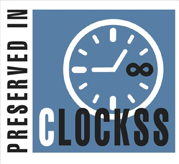Child temporal processing assessment task: construction and content validity through expert judgment
Josefina Rubiales, School of Psychology, Instituto de Psicología Básica, Aplicada y Tecnología, Consejo Nacional de Investigaciones Científicas y Técnicas, Universidad Nacional de Mar del Plata, Mar del Plata, Argentina
Background: Temporal processing is an essential skill for adaptation and organization in childhood. However, there are few validated tools that assess this ability in everyday contexts. Objective: This study examines the content validity of an instrument designed to assess temporal processing in childhood, based on everyday activities and a parent questionnaire. It evaluates four dimensions: temporal perception, temporal orientation, time management, and temporal autonomy. Method: Seven expert judges assessed the clarity, coherence, relevance, and sufficiency of each item and activity using Aiken’s V coefficient. The final version of the instrument incorporated expert suggestions to enhance its conceptual precision and alignment with the evaluated constructs. Results: Statistical analysis revealed a high level of agreement among the judges (Aiken’s V ranging from 0.85 to 1). All four dimensions demonstrated strong validity indicators, with time management and temporal autonomy standing out. Conclusion: The results validate the instrument as a reliable tool for assessing temporal skills in childhood, providing valuable insights for clinical neuropsychology and research.
Keywords: Time perception. Time management. Content validity. Temporal skills assessment.




